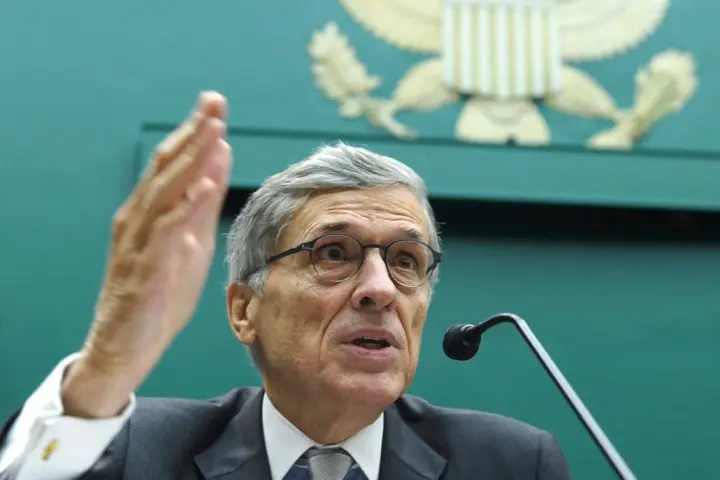
Under pressure from legions of online protesters, as well as heavyweights in the tech world like Google, Yahoo, and Netflix, FCC Chairman Tom Wheeler announced revisions to the commission’s recent proposal for net neutrality regulation, designed to disallow unfair advantages given to companies who pay for faster access online.
Though still under scrutiny from net neutrality advocates, the new revisions ostensibly attempt to both stop ISPs (Internet Service Providers) from giving preferential treatment to companies who put up cash for faster Internet access, as well as preventing them from intentionally slowing traffic for select services. Both issues have been of major concern as of late, but the latter issue was recently brought to light thanks to allegations made by Internet backbone companies Cogent and Level 3, which said that ISPs like Comcast and AT&T have been intentionally throttling video services on their networks for over a year by purposely refusing to upgrade their basic infrastructure.
The original wording of the FCC’s new regulatory proposal was immediately under fire, as it addressed the issues raised by Cogent and Level 3 to stop services from intentionally slowing streams, but left the door open for ISPs and other services to accept payment for access to Internet fast lanes. Today’s revisions are designed to allay such concerns, ahead of a vote on the new proposal this Thursday.
A Wall Street Journal report quoted an official from the FCC who said that the commission will be looking into banning paid prioritization deals outright, ostensibly to include those made by Netflix with Verizon and Comcast, in which the popular streaming service made unprecedented concessions to pay those ISPs directly for access to faster connection. Netflix has since denounced those deals, claiming it was compelled to make the agreements thanks to slowing speeds on those networks.
According to the Journal, the commission is also looking into categorizing ISPs as utilities, which would subject them to greater regulatory restrictions.
However, it’s unclear whether Wheeler’s latest revision will have any teeth. As of now, cash deals between ISPs and other services would still be allowed. According to officials, the FCC will “scrutinize the deals to make sure that the broadband providers don’t unfairly put non-paying companies’ content at a disadvantage.” But given the lax approach the FCC has taken on the matter, even before a landmark court decision in favor of Verizon dissolved previous net neutrality regulations, today’s draft still has many neutrality advocates crying foul.
Concerns over the new regulations are worrisome enough that two of the five FCC commissioners involved, Democrat Jessica Rosenworcel and Republican Ajit Pai, have reportedly called for Thursday’s vote to be delayed while the commission addresses the issues raised by net neutrality advocates.
As it stands, the new drafted proposal essentially leaves the matter up to the FCC and chairman Wheeler’s own judgement as to whether or not handshake agreements for faster access represent an unfair advantage to other services online. And that kind of leeway leaves a lot of holes exposed in the regulatory armor – especially given the amount of money ISPs like Comcast, who is in the middle of a $45.2 billion merger with Time Warner Cable, have to throw around.
We’ll continue to follow this story as it unfolds, so stay tuned for more updates. What do you think about the new revisions? Are you confident that the FCC can keep things fair for all companies competing for fair access online? Let us know in the comments.


